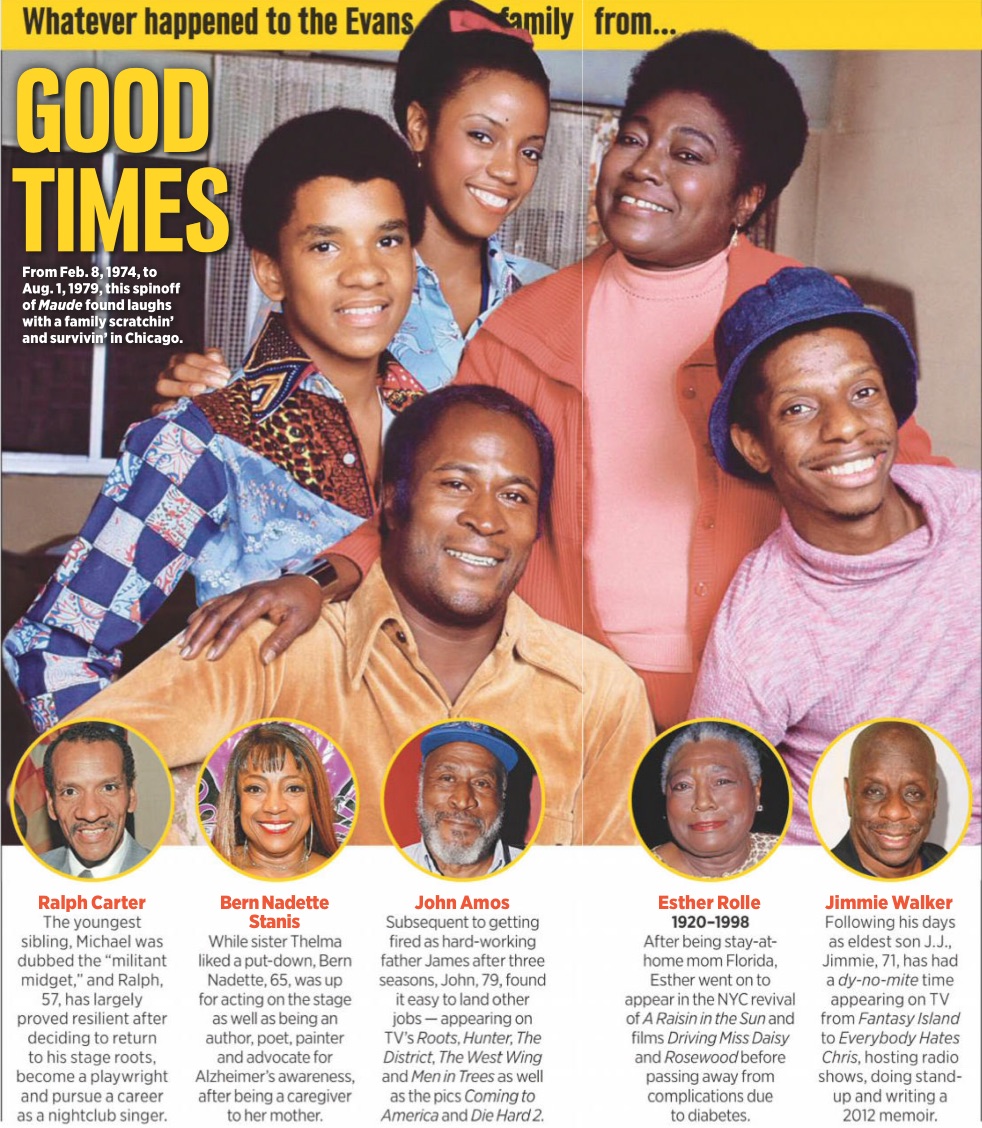Good Times cast has left an indelible mark on the landscape of American television, captivating audiences with its portrayal of a struggling African American family in Chicago during the 1970s. The show, which aired from 1974 to 1979, not only entertained viewers but also addressed significant social issues, making it a landmark series in TV history. In this article, we will delve into the lives and careers of the Good Times cast, exploring their individual contributions to the show and their journeys beyond it.
The legacy of Good Times continues to resonate today, as it paved the way for future television shows that tackle similar themes of family dynamics and socio-economic challenges. The characters portrayed by the cast, including Florida, James, J.J., Thelma, and Michael, became cultural icons, representing the resilience and strength of the African American community. Join us as we uncover the stories behind the actors, their experiences in the industry, and how they have shaped the narrative of African American representation on television.
In this comprehensive guide, we will provide insights into the biographical backgrounds of the main cast members, their notable achievements, and how they have influenced the entertainment industry. We will also discuss the impact of Good Times on television and its relevance in contemporary media. Let's get started!
Read also:Anthony Kiedis Gay
Table of Contents
- Biography of the Good Times Cast
- Florida Evans: The Heart of the Family
- James Evans: The Strong Patriarch
- J.J. Evans: The Comedic Relief
- Thelma Evans: The Aspiring Dancer
- Michael Evans: The Voice of Reason
- The Impact of Good Times on Television
- Conclusion
Biography of the Good Times Cast
The Good Times cast includes some of the most talented actors of their generation, each bringing their unique flair to the series. Below, we highlight the main cast members and provide a brief overview of their contributions to the show.
Florida Evans: The Heart of the Family
Florida Evans, portrayed by Esther Rolle, is the matriarch of the Evans family. She is depicted as a strong, nurturing mother who works tirelessly to provide for her family despite facing numerous challenges. Rolle's performance earned her critical acclaim and made Florida an iconic character in television history.
Florida Evans Data and Personal Information
| Name | Birth Date | Notable Works | Awards |
|---|---|---|---|
| Esther Rolle | November 8, 1920 | Good Times, Maude | Primetime Emmy Award Nominee |
James Evans: The Strong Patriarch
James Evans, played by John Amos, is the hardworking father of the Evans family. His character embodies strength and determination, often facing the struggles of unemployment and financial instability. Amos's portrayal of James brought depth to the character, showcasing the complexities of fatherhood in a challenging environment.
J.J. Evans: The Comedic Relief
J.J. Evans, portrayed by Jimmie Walker, is known for his catchphrase "Dy-no-mite!" and his humorous antics. As the eldest son, J.J. often uses comedy to cope with the family's hardships, making him a beloved character among fans. Walker's performance contributed significantly to the show's popularity and helped define the role of comedy in addressing serious topics.
Thelma Evans: The Aspiring Dancer
Thelma Evans, played by BernNadette Stanis, is the only daughter in the Evans family. Her character is ambitious and dreams of becoming a dancer, showcasing the aspirations of young women in the 1970s. Stanis's portrayal of Thelma added a layer of depth to the series, highlighting the struggles and triumphs of young women of color.
Michael Evans: The Voice of Reason
Michael Evans, portrayed by Ralph Carter, is the youngest son in the family. His character is often seen as the voice of reason, advocating for social justice and equality. Carter's performance brought a youthful perspective to the show, emphasizing the importance of education and activism among African American youth.
Read also:Beyonceacute And Diddy A Musical Legacy And Cultural Phenomenon
The Impact of Good Times on Television
Good Times is often regarded as a groundbreaking series that addressed critical social issues such as poverty, racism, and family dynamics. The show's portrayal of an African American family living in a low-income neighborhood was a significant departure from the predominantly white sitcoms of the era.
- Representation: Good Times provided representation for African Americans in media, paving the way for future shows that would explore similar themes.
- Social Issues: The series tackled social issues head-on, making it one of the first sitcoms to address topics such as unemployment and systemic racism.
- Cultural Impact: The show's characters became cultural icons, influencing fashion, language, and social attitudes in the 1970s and beyond.
The legacy of Good Times continues to influence contemporary television, with many modern shows drawing inspiration from its themes and characters. The impact of the Good Times cast and their contributions cannot be overstated, as they have shaped the narrative of African American representation on television.
Conclusion
In conclusion, the Good Times cast played a pivotal role in creating a series that not only entertained but also educated audiences about the realities of life for African American families. Their performances brought to life the struggles and triumphs of the Evans family, leaving a lasting legacy in the world of television.
We encourage readers to share their thoughts on the Good Times cast in the comments section below and to explore more articles on our site that delve into the history of television and the impact of iconic shows.
Thank you for joining us in this exploration of the Good Times cast. We hope you found this article informative and engaging, and we invite you to return for more insights into the world of entertainment!
Article Recommendations
![The Original Cast Of 'Good Times' Wants To Make A Movie With Your Help [sitename] Essence](https://i2.wp.com/www.essence.com/wp-content/uploads/2013/03/images/2013/03/12/good-times-cast.jpg)

